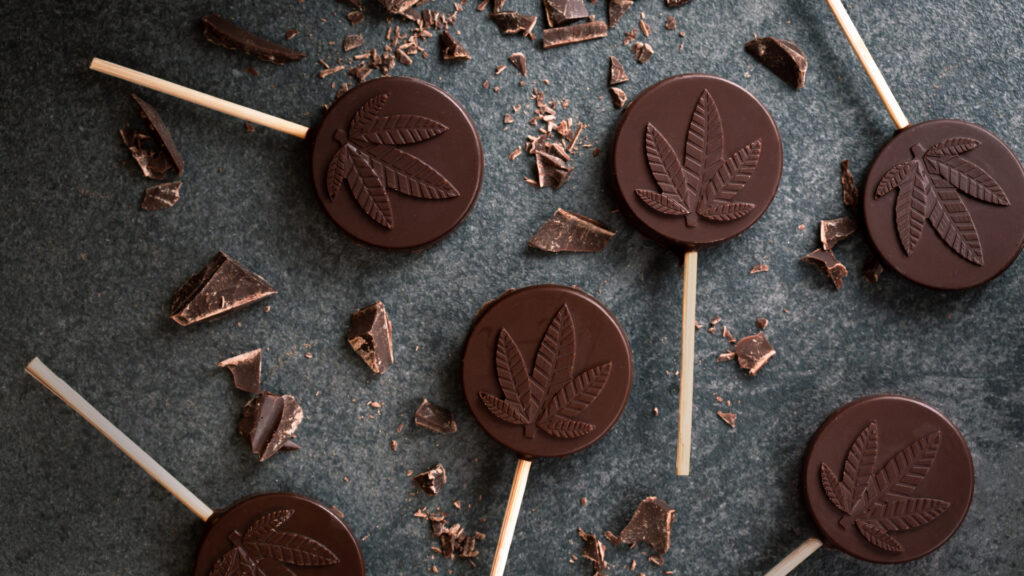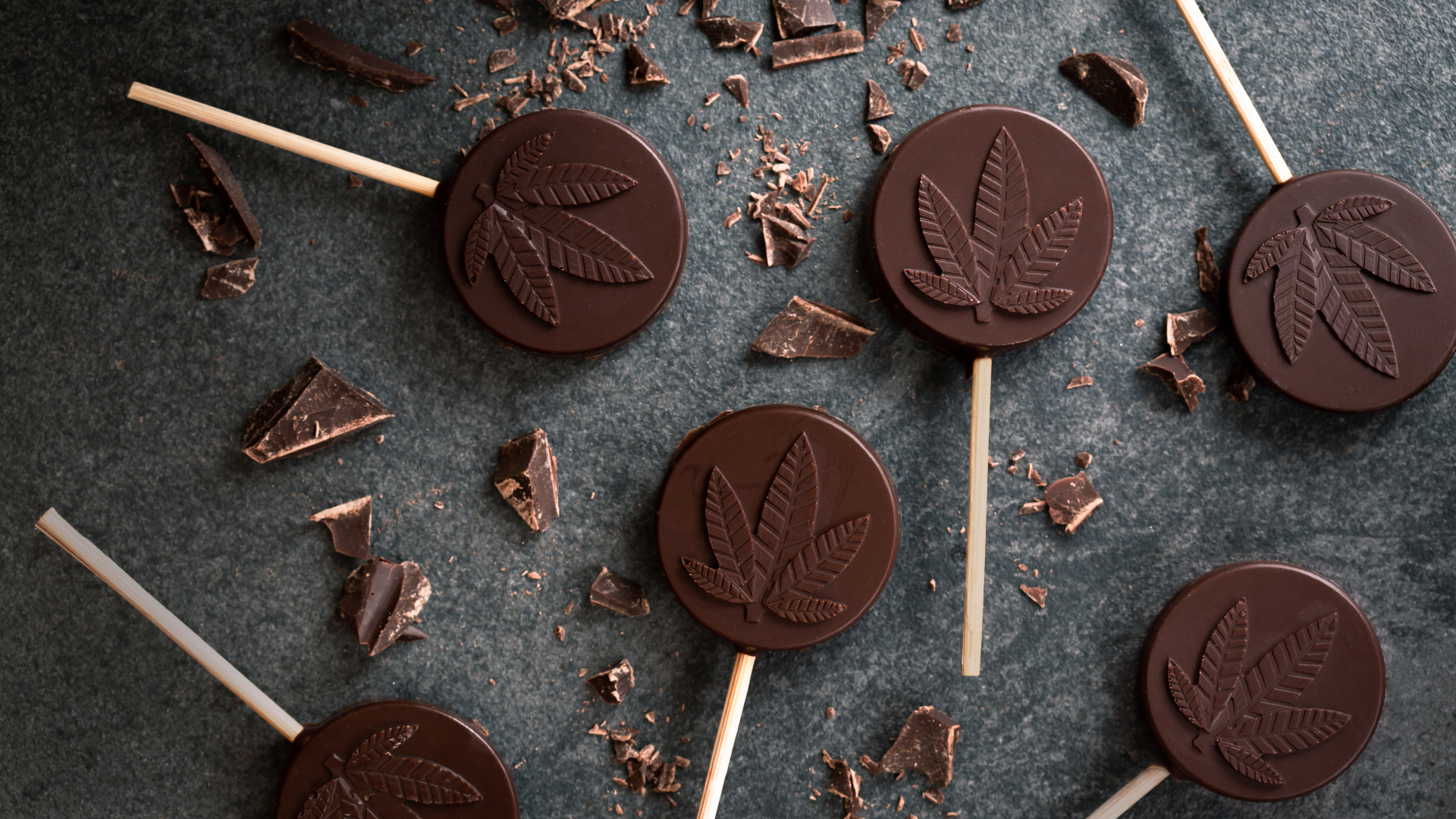If you’ve ever got stoned on an edible and thought to yourself, “this feels different,” you’re right.

If you’re new to cannabis land and want to explore its effects without smoking or vaping, cannabis 100mg edible are a reasonable thing to try. After all, it’s just the same as smoking, right? Except you eat it?
So if we get our hands on a 100mg edible product (say a 100 mg candy bar served in 20 pieces) we can set it side-by-side with its flower equivalent — one-tenth of gram of herb — and expect the same experience, right?
Not so fast. It doesn’t quite work like that. Makes you wonder, doesn’t it, how much weed is in a 100 mg edible? Let’s dig in.
Edibles are Unpredictable
There are many reasons cannabis affects everyone differently, including gender, body composition, your personal physiology, tolerance, genetics, and more. Edibles are tricky to dose because cannabis onset takes longer, often tricking you into thinking that you didn’t consume enough the first time around.

There’s not a lot of guesswork when consuming via inhalation methods like smoking or vaping — cannabis’ effects are felt nearly simultaneously. The smoke travels quickly to your lungs and then disperses throughout your body and brain courtesy of your bloodstream.
Cannabis edibles? Not so much. Cannabinoids like THC have to take a little journey; first to your stomach, then to your digestive tract where it hangs out a while, then onto the liver — our body’s organic filter — where it breaks down cannabinoids into a cannabis metabolite called 11-Hydroxy-THC.
While smoking or vaping cannabis also produces 11-Hydroxy-THC, it does so on a much smaller scale, about 10 times less than edibles.

In addition to a longer onset time and perhaps a bit of guesswork on how much of an edible dose you’re taking, you now have to factor in a new metabolite roaming around your body, whose effects we are only recently learning about.
What is 11-Hydroxy-THC?
If you’ve ever got stoned on an edible and thought to yourself, “this feels different,” you’re right. PotGuide contributor Paul Barach explains why edibles are hitting you harder in his piece, What Is 11-Hydroxy-THC:
“The reason that edibles can hit so much stronger, and create a more psychoactive effect, is that 11-hydroxy THC’s shape allows it to pass through the blood-brain barrier much easier than delta-9 THC. The molecule also binds much stronger to the brain’s cannabinoid receptors. The stronger the bond to the CB1 receptor, the greater the activation of that receptor. Because there are so many more 11-hydroxy THC molecules in the blood, that means more receptors are being activated. This means more neurotransmitters being released into your brain, which are what cause cannabis’ psychoactive effects.”
Asking how much weed is in a 100mg edible may not be the right question. Maybe the question could be reframed to ask, “How much more of THC’s effects are in a 100mg edible?” While it may not be the precise answer our minds desire, it’s more inclusive of the realities of edibles: often unpredictable, sometimes difficult to dose, but tasty nonetheless.
Frequently Asked Questions
Is a 100mg Edible the Same as an Eighth of Weed?
A 100mg edible is about one-tenth of a gram of flower, but the effects of a 100mg edible will be much stronger due to how it’s being absorbed in your body.
How Many Milligrams of THC are in a Gram of Weed?
Very approximately, one gram of weed has 100 mg of THC. Its effects will vary, depending on things like potency, consumption method, etc.

